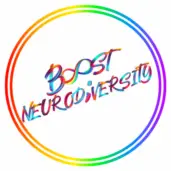It seems we can’t find what you’re looking for. Perhaps searching can help.
ASD (Autism spectrum disorder)
Welcome to our ASD (Autism Spectrum Disorder) category, a special section where we explore and celebrate the broad and vibrant world of autism. Here, we staunchly advocate for neurodiversity and are committed to spreading awareness and fostering understanding of the unique aspects that make every individual on the autism spectrum extraordinary. Autism is not something to be feared, but instead something to be respected, embraced and recognized as a crucial part of the beautifully complex tapestry of human neurology.
As pro-neurodiversity advocates, we believe that each individual’s neurology is unique, worthy, and deserving of respect and celebration. This extends unequivocally to individuals on the autism spectrum. Within this category, we will delve into a myriad of topics — from personal experiences and challenges, success stories and innovations, to the latest scientific findings. Our mission is to honour the full spectrum of autistic identities, dismantling misconceptions, promoting acceptance, and highlighting the countless ways those with autism contribute to our communities. We invite you to journey with us in celebrating the colourful and valuable array of neurological diversity that is the Autism Spectrum.
Autism spectrum disorder (ASD) is a developmental disorder that affects communication, behaviour, and social interaction. It is a condition that is present from early childhood and affects an individual throughout their life. The symptoms of ASD can range from mild to severe and can manifest in various ways. These symptoms may include difficulty with social interaction, problems with verbal and nonverbal communication, repetitive behaviours, and sensory issues.
Individuals with ASD often struggle with understanding and expressing emotions, making social connections, and developing friendships. They may have difficulty interpreting social cues, understanding social norms, and communicating effectively with others. These difficulties can often lead to challenges with school and work, as well as emotional and mental health problems.
It is important to note that each person with ASD is unique and has their own strengths and challenges. While there is currently no cure for ASD, early diagnosis and intervention can help individuals with ASD improve their quality of life. Treatment may involve behavioural therapies, educational interventions, and medications to manage symptoms. With the right support, individuals with ASD can lead happy, fulfilling lives.

